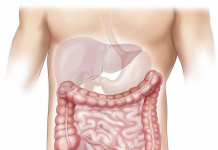Most of the “dieters” believe that fats are their main enemy and should be completely removed from their daily diet. However, eliminating the fats completely is not a good idea. At the same time, the “light” products are not always helpful at “shading those extra pounds“.

Eliminating Fats
Fats are essential for the process of absorption of some vitamins (such as A, E, D, and K); without fats the skin becomes wrinkled and the hair turns dry and brittle. Moreover, the fats support nervous system, are necessary for production of numerous hormones, and protect the body from hypothermia. Following 2000 calorie diet, the body needs about 70g of fat daily. One fifth of this amount (around 15 grams) should be saturated fats (such as butter, pork fat, and fatty meat), while the rest unsaturated (contained mostly in vegetable oils and fish).
Can “Light” Foods Really Help Lose Weight?
If you follow the diet plan described above, then excessive weight and health problems will not concern you. However, not everyone can stick to this rule and so they often try to satisfy their cravings for taste with the help of “light” products. This is where they fall into the trap. The point is that calorie content of “light” foods is usually around 11% less from the regular products. Yet, since fats make us feel full sooner, once you have a cup of non-fat yogurt you will definitely want another helping.
Besides, as manufacturers try to reduce fat content without compromising the taste of their product they often enrich the “light” versions with other non-diet additives.
Dangerous Diet
Before filling yourself with diet products make sure to carefully read over their nutrition contents and ingredients.
Non-fat Yogurt
Producers add starch into it in order to make it taste good and thus such yogurts have higher content of carbohydrates than regular yogurts do. Therefore, carefully read calorie content, since zero fat does not mean zero calories.
“Light” Mayo, Fat-Free Cake, and Soft Butter
Those products typically contain transfats. This type of fat is the liquid fat (for example, vegetable oil) solidified through special food processing technique. Transfats are widely used in margarine, cakes with cream, and cookies.
Fitness Cereal
Fitness cereal usually contains 350-400 calories per 100 g. In comparison, two scrambled eggs will only add 200 calories to your daily intake. Therefore, those cereals will unlikely help you succeed at losing the extra pounds.
Diet Bread
Unlike regular bread, this type of bread poorly fills you, so that every time you have one your hand reaches to spread some jam on it.
“Diet” Pop
Those drinks replace regular sugar with artificial sweeteners. Those are sweeter than sugar, but contain no calories. It may look like a great deal! However, our body is too smart to be tricked so easily. Insulin is produced in order to digest sugar. Yet, since the sweet taste is the trigger for insulin production, sweeteners also trigger insulin production. As a result, the body is not getting the calories it is ready to start digesting and so it starts demanding energy with double power ( i.e. you get very hungry).
Non-Fat Foods and Fertility
Medics from the Harvard School of Public Health and Harvard Medical School, Boston, believe that women who want to have children should eliminate non-fat foods from their diet. They think that women who consume more than two servings of non-fat foods daily increase their risk of infertility associated with lack of ovulation by 85%. The study was published in the Journal of Human Reproduction.
Source of the image: flickr.com/photos/miikka_skaffari.










